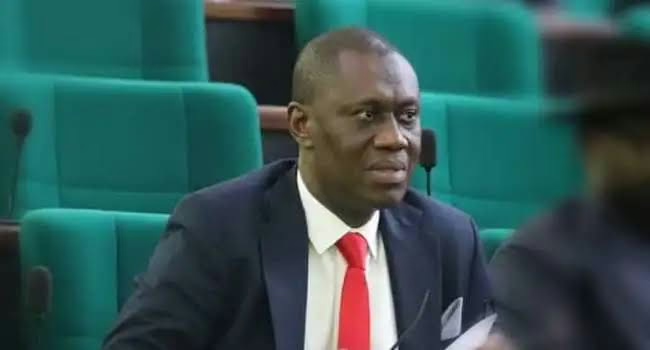The World Health Organisation in 2021 described suicide as the fourth leading cause of death among young people, especially those aged between 15 and 29 years. Indeed, there have been series of suicide attempts by young persons, and even older individuals.
In 2022, the global health body also said Africa had the highest rate of deaths by suicide, noting that about 11 persons per 100,000 per year die by suicide on the continent, which was higher than the global average of nine per 100,000 persons.
On Tuesday, a 14-year-old girl, Desola Adeoye, who lived with her father and stepfather in the Shogunle area of Lagos State, reportedly committed suicide.
According to media reports, Desola had been subjected to physical abuse by her father, Sunday Adeoye, and his wife, and that she allegedly drank insecticide to escape the torture.
The Deputy Director of Medical Social Services, Lagos University Teaching Hospital, and training coordinator of Suicide Research Prevention Initiative, Dr Titilayo Tade, said the rate of suicide in Nigeria in 2019 was 6.9/ 100,000, which was higher than the 6.5/100,000 rate in 2012; but underreported.
A study conducted on suicide in Nigeria in 2021 also indicated that the country has one of the highest rates of suicide in Africa.
A mental health practitioner in Lagos, Marcy Umweni, told our correspondent that there are several factors that could increase the risk of suicide in individuals.
She added, “Mental health conditions such as depression, anxiety disorders, borderline personality disorder and schizophrenia, among others, can increase the risk of people choosing to die by suicide.
“Traumatic experiences such as rape, childhood sexual abuse, physical abuse or war trauma can also contribute to the risk factors. Additionally, people who abuse substances are at high risk of committing or attempting suicide.”
Look out for warning signs
While things are hard for many people, given the current economic realities, findings showed that people who are suicidal tend to repeatedly express loss of hope and comments that suggest they were tired of trying and tired of life.
Meanwhile, Umweni emphasised the importance of learning the warning signs that might indicate that a person is at risk of suicide.
She stated, “One of the helpful, preventive ways is to know the warning signs that indicate someone is at a high risk of suicide. If the individual is giving the hint of killing themselves or asking people for ways to kill themselves, that is a sign.
“They could be visiting friends and family and suggest they are saying goodbye, giving away their prized possessions or writing a suicide note. They could be talking about things not ever getting better or feeling like a burden to their families.”
A mental health nurse, Darius Essien, noted, “Warning signs include inflicting injuries on oneself, numbness, being more upset than most people, abrupt social withdrawal, sleeping or eating a lot more than usual and talking about ending it.”
Talk to the person
Umweni stated that many youths at risk of suicide need assistance from support givers who should talk to them.
She added, “You should talk to them, informing them that you are worried and concerned about them. Don’t be afraid to directly ask them what you have sensed. Tell them you are worried and concerned about them.
“Ask them if they are okay or if they are thinking of hurting or killing themselves. Some experts believe many people thinking about suicide find relief when they freely talk about their feelings.”
Essien added that many people struggling with suicidal thoughts tend to shut down communication, “but this barrier can be scaled over by being deliberate in your care and talking with them.”
Listening helps
Essien advised friends and family to listen carefully to what young adults say as this helps to make them feel accepted. He warned however that even while listening, it could be counter-productive to dismiss their concerns as if they weren’t strong enough to handle such situations.
He explained, “Listen to them like a true friend and family member. The person thinking about suicide needs your support by giving them a listening ear. Avoid interrupting them while they are speaking or trying to dismiss their pain by saying things are not as bad as they think. That kind of gesture shuts down communication.
“Avoid saying things like ‘you are being dramatic or overreacting.’ Let them talk about their thoughts and feelings, and be a good listener. It is in listening well that you find out how long they may have been struggling and what they are dealing with.”
Don’t be judgmental
Umweni advised support givers to avoid judging or being overly critical of what the young person thinking of suicide says.
She stated, “Don’t forget that many people at this crossroads need someone who cares and understands them. So, avoid judging their anger or being too critical of their situation. The main thing you should let them realise is that you have heard them.
“Let them know that you have been listening and you understand why they are upset. Assure them you want to help them and you want them to get better. That offers a measure of trust.”
Be physically present
Essien pointed out that loneliness and social isolation could be addressed by physically present supporters. While general communication is key, it is said that visiting such persons in person, and not just communication on the phone, is critical. This is because it makes them feel loved and it gives the person the opportunity to physically assess their condition and behavioural change, which could give useful hints.
Essien added, “Many youths with mental health issues may feel like they are different from everyone else or that no one can understand. So, it is important that you are physically present with them. As a friend, share their bed with them, watch TV together and listen to music. Your physical presence can diminish that inclination towards suicide.
“Let them know that youths have felt overwhelmed, depressed, scared and angry the same way they feel and that you are genuinely interested in helping them get through their situation. Even more importantly, let them know that you and others care and that you are present to support them.
Get relevant agencies involved
Umweni advised supporters to get in touch with therapists and professional counselors to help such persons. No doubt, some may be opposed to the idea, but it is also advised that they are made to see reasons why such is best for them.
“Talk to a mature adult about the issue and it is important to get in touch with professional counsellors to help the young adult. In cases of domestic violence or physical abuse, notify the relevant agencies,” she added.
Corroborating Umweni’s counsel, Essien also urged parents and caregivers to “let the individual see a professional counsellor or call a suicide prevention hotline for help.” He added, “The Lagos State Domestic and Sexual Violence Agency, for instance, provides free mental healthcare and takes up cases legally.”











Leave a Reply